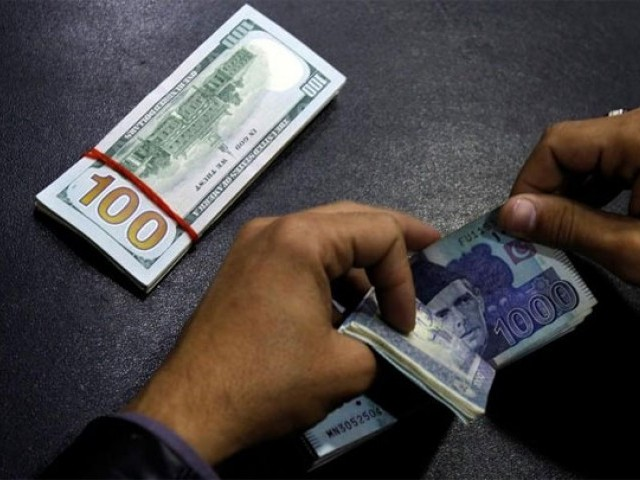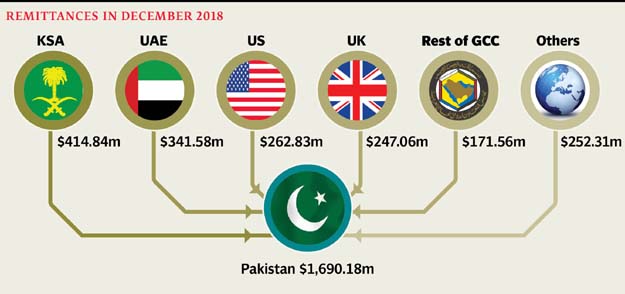Remittances fall due to global economic slowdown
Drop comes despite rupee depreciation, crackdown on illegal channels

PHOTO: FILE
The sluggish remittances, which remain a big source of Pakistan’s foreign earnings used to specifically finance imports and debt repayments, will pile on the pressure on the already low foreign currency reserves of the country.
Overseas workers sent home $1.69 billion in December 2018, which was almost 2% lower than the $1.72 billion received in the same month of previous year, the State Bank of Pakistan (SBP) reported on Thursday.
The decrease widened the gap between the realised remittances and the target of $22 billion for fiscal year 2018-19. The drop comes despite the fact that Pakistan has let the rupee go down by a massive 32% against the dollar in the past 13 months to attract higher remittances through legal banking channels and a crackdown on the illegal Hawala and Hundi system.
Pakistan adopts blockchain technology to attract remittances
“Remittances are on a downward trend mainly from the Middle East (Saudi Arabia and Dubai) due to economic slowdown in the region,” Arif Habib Limited Head of Research Samiullah Tariq told The Express Tribune.
Remittances also dropped from European countries in December 2018 compared to the same month of previous year. They, however, improved from the US, the UK and Australia, he noted.
“Thanks to the lower trade deficit in December, this will ease the pressure on foreign currency reserves coming from weak remittances,” he said.

Target missed
Cumulatively, in the first half (Jul-Dec) of FY19, the remittances were recorded at $10.72 billion, almost 10% higher compared with $9.74 billion in the same period of FY18.
The growth in remittances slowed down in Jul-Dec compared to the growth in previous months. With this, the country has missed the target of $11 billion for the first half by 2.54%.
“We need to maintain a 10% monthly growth in remittances to achieve the target of $22 billion for FY19,” Tariq said. “It seems quite difficult to maintain the required growth rate in remittances due to the persistent economic slowdown in the Middle East which has remained in trouble for about three to four years.”
A significant drop in international crude oil prices since October and fiscal consolidation over the last three to four years were major reasons for the slowdown in remittances from the Middle East, he added. Many Pakistanis have returned home from the region after Gulf nations started laying off workers and preferred locals in employment, he said.
Country-wise remittances
A breakdown for December 2018 showed that inflows from Saudi Arabia amounted to $414.84 million compared to $431.97 million in the same month of previous year.
Remittances from the UAE stood at $341.58 million compared to $396.74 million last year, from the US they were $262.83 million compared to $234.76 million and from the UK the workers sent $247.06 million compared to $223.30 million.
From Gulf Cooperation Council (GCC) countries - including Bahrain, Kuwait, Qatar and Oman, Pakistanis sent home $171.56 million in Dec 2018 compared to $188.76 million in December 2017. Remittances from EU countries were $45.62 million compared to $54.87 million.
Remittances from Malaysia, Norway, Switzerland, Australia, Canada, Japan and other countries amounted to $206.69 million in Dec 2018 against $193.17 million in December 2017, the central bank reported.
Published in The Express Tribune, January 11th, 2019.
Like Business on Facebook, follow @TribuneBiz on Twitter to stay informed and join in the conversation.



















COMMENTS
Comments are moderated and generally will be posted if they are on-topic and not abusive.
For more information, please see our Comments FAQ